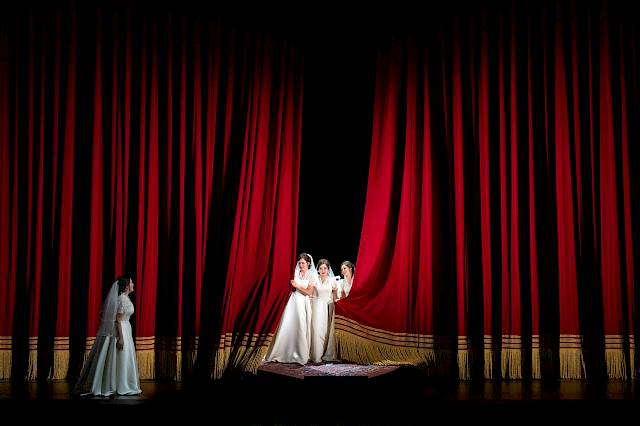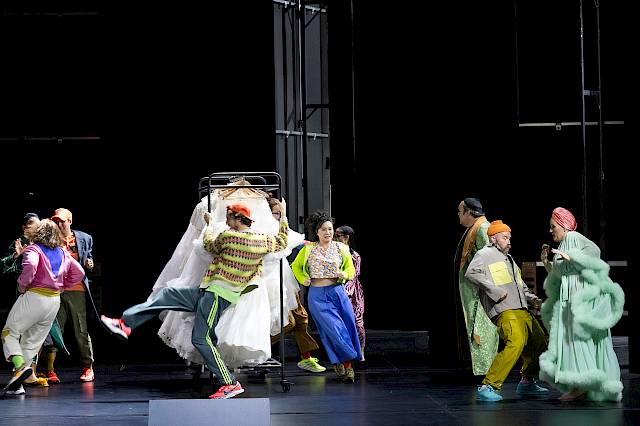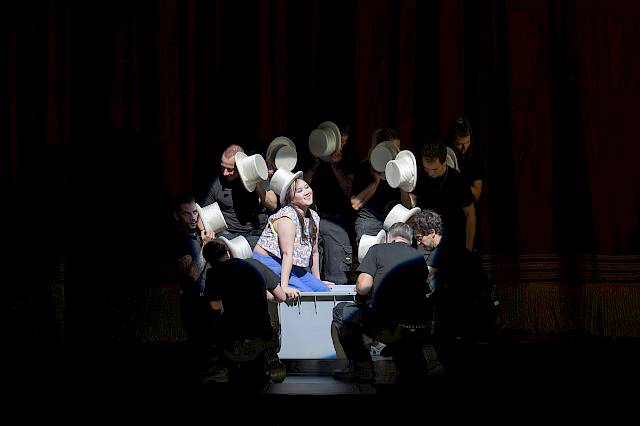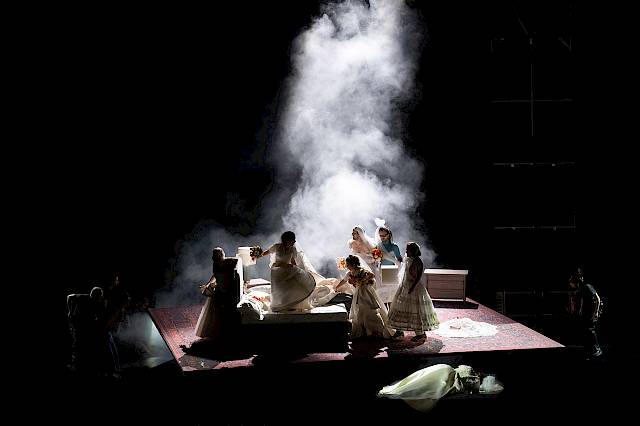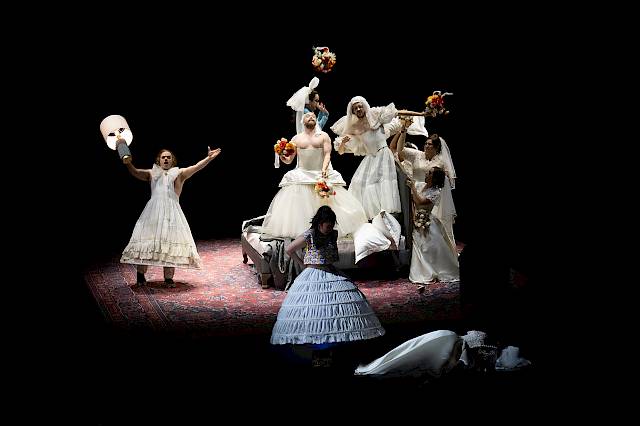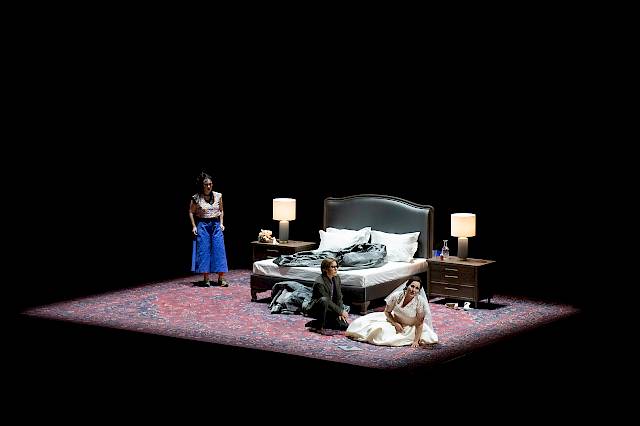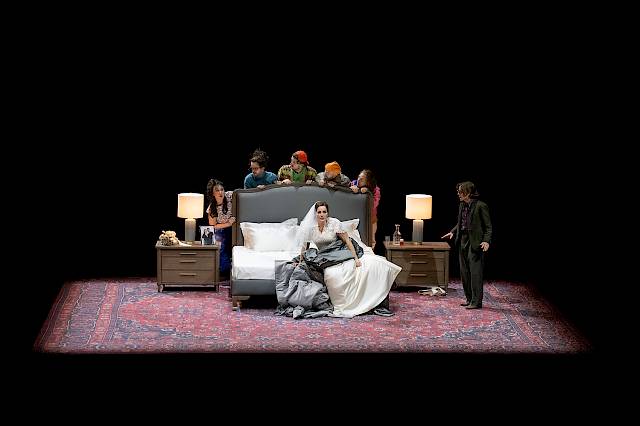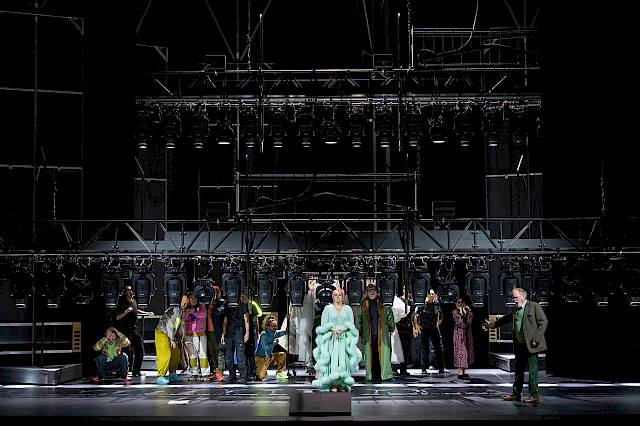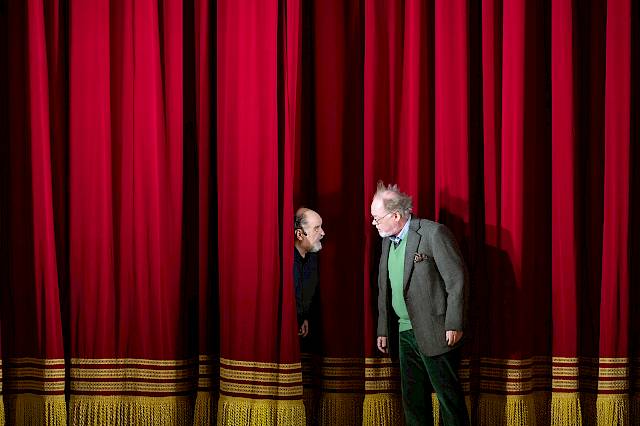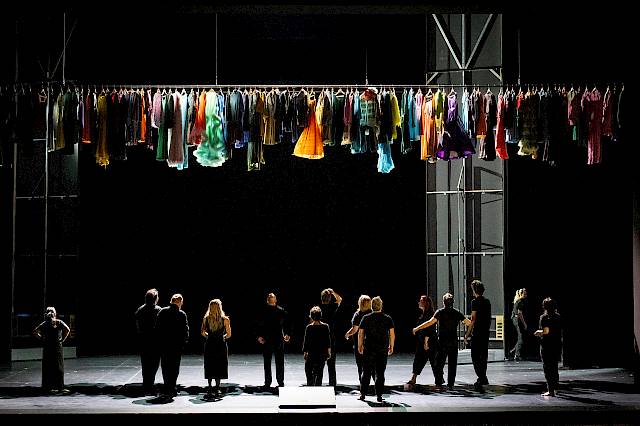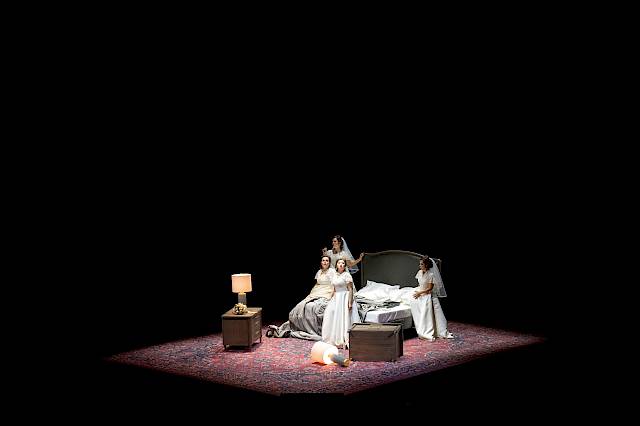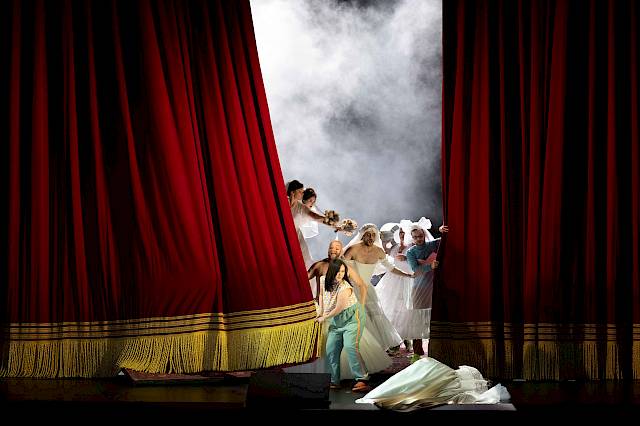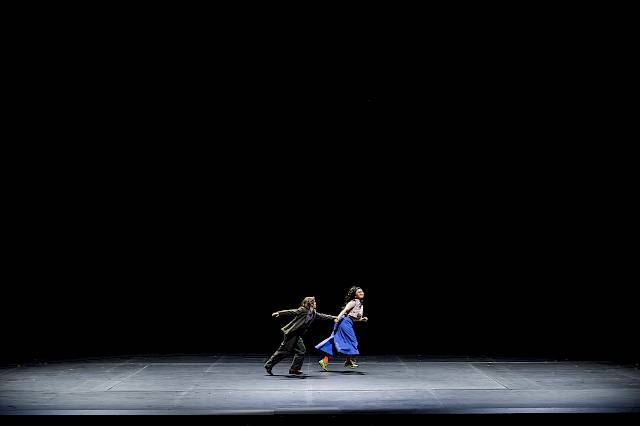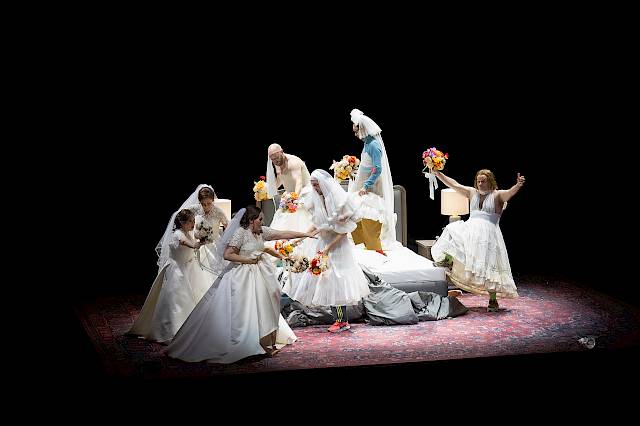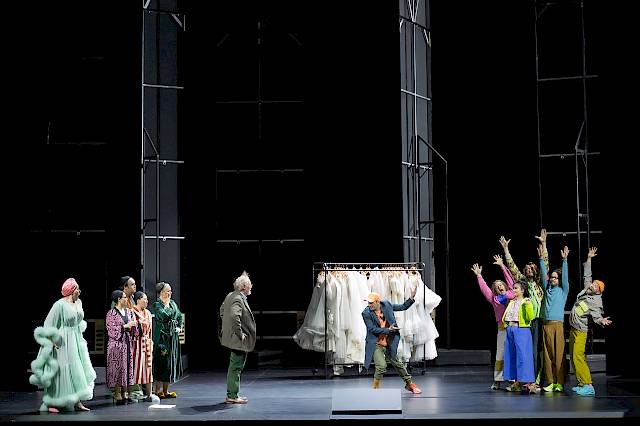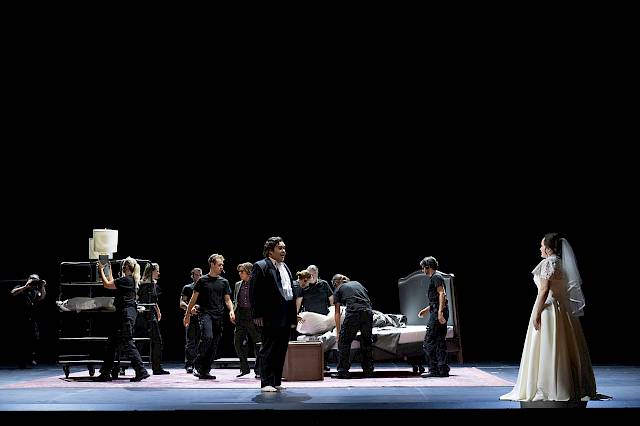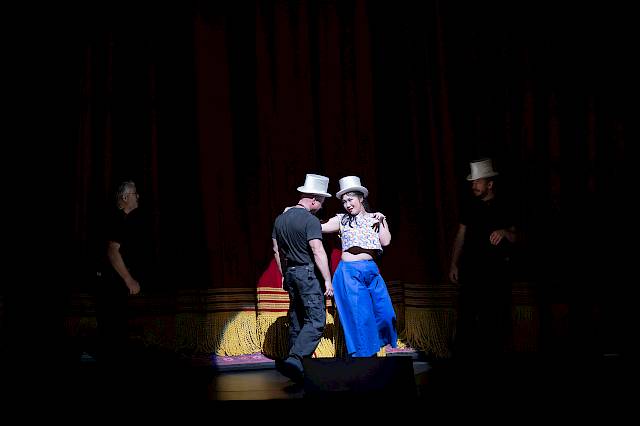Prologue
A young composer has composed a tragic opera, Ariadne on Naxos, for a gala evening. He is furious when he learns from his music teacher, just before the performance, that the person who commissioned the work has decided to present his guests with a burlesque comedy with dance interludes after the opera. A burlesque troupe, consisting of Zerbinetta and her companions, has already been engaged for the occasion.
The opera's prima donna and the burlesque troupe meet. While Zerbinetta and the dance master poke fun at the boring opera, the music teacher reassures the prima donna that Ariadne is evening's main attraction. At this point, the master of the house announces another change of plan. To everyone's horror, he says that due to time constraints – and in order to fill up the rather mournful setting of the desert island Naxos – both pieces are now to be shown simultaneously.
The composer feels that he and his art are being mocked, and wishes to depart. The music teacher points out that they both urgently need the fee, and will have to put up with the whims of their employer. The dance master also advises the composer to rescue the opera by reworking it. He points to the improvisational skills of the troupe, and begins to brief Zerbinetta on the opera's plot.
When the composer interrupts them to explain the deeper artistic purpose of his opera, Zerbinetta is impressed by the young artist's passion and vision. She confesses to him that she sometimes feels just as lonely as the character Ariadne, whom he created. Contrary to her reputation as the ‘unfaithful Zerbinetta’, she too longs for one true love. The composer, enchanted by the young woman, suddenly sees life in bright new colour. But the sudden appearance of the burlesque troupe brings him back to reality and the imminent destruction of his work, as the performance begins.
Opera
The nymphs Naiad, Dryad and Echo comment on Ariadne's desolate state. Abandoned by Theseus, in her deep sorrow she wishes only to forget. She sees death as the only way to soothe her pain.
Zerbinetta and her companions Harlequin, Brighella, Scaramuccio and Truffaldin try in vain to cheer Ariadne up – but her desire for death grows ever stronger. Even when Zerbinetta is alone with her and attempts to comfort her with the prospect of a new love, Ariadne remains unmoved, and withdraws. Finally, Zerbinetta announces her own credo of constant change, and proceeds to amuse herself with her four suitors; Harlequin ultimately wins her heart.
The nymphs announce the arrival of a god: it is Bacchus, who has just escaped the seductive arts of the sorceress Circe. Ariadne, touched by his voice, believes she recognises in him the long-awaited messenger of death, Hermes. Bacchus, who at first fears that with Ariadne he has fallen into the clutches of a second Circe, is also attracted to her. However, their encounter and this mutual misunderstanding brings about a transformation in both of them: where Circe's arts had failed, Bacchus now experiences a new beginning with the feeling of love. Ariadne, too, rediscovers her capacity for love – just as Zerbinetta had foreseen.


